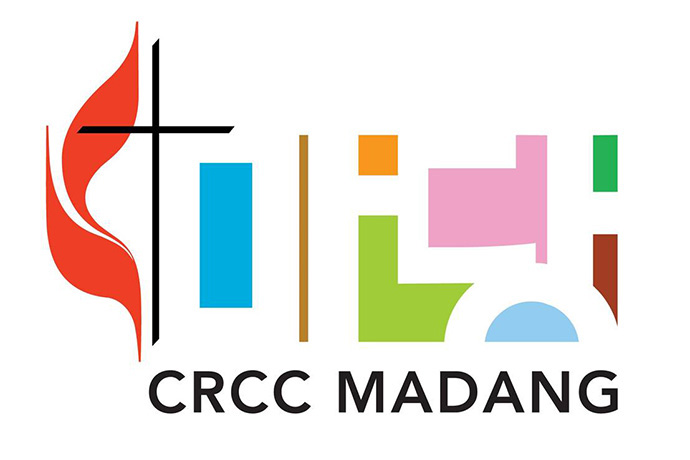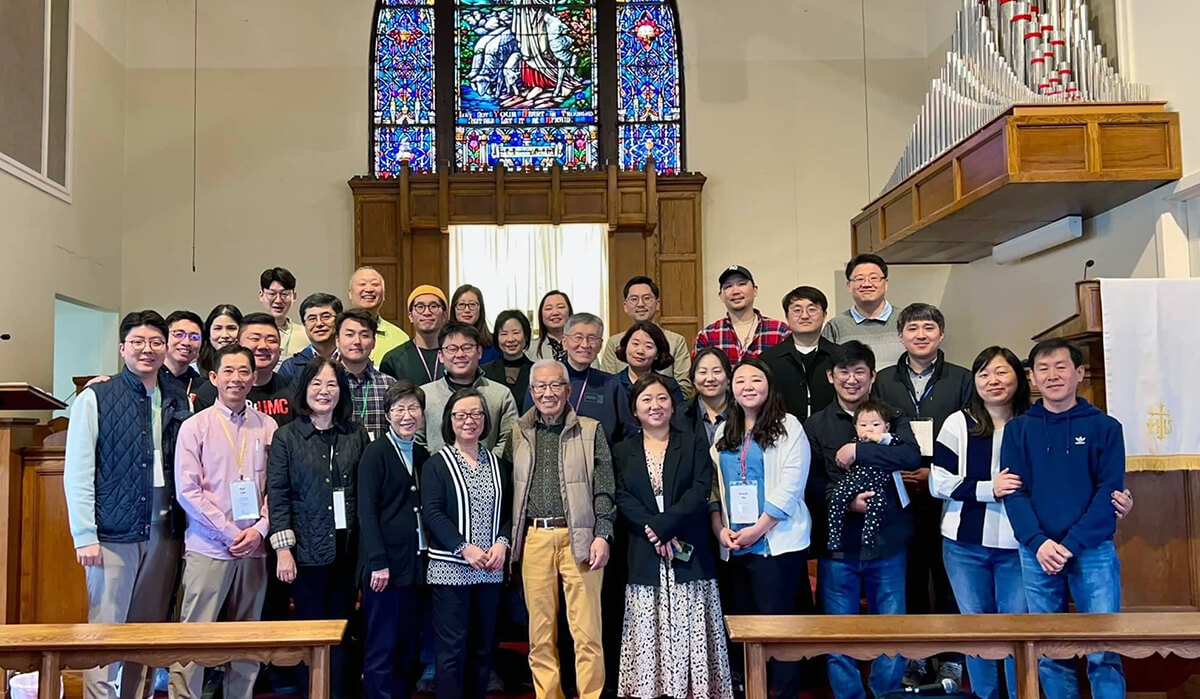Key points:
- CRCC Madang is an enhanced and evolved program called to cultivate a new generation of Korean American United Methodist pastors who serve cross-racial appointments.
- The program is currently recruiting for its seventh class, which will convene Aug. 12-16 in Arlington Heights, Illinois, a Chicago suburb.
- Program graduates make up about 16% of the 570 Korean pastors serving a cross-racial appointment as of 2023. Alumni will lead much of this year’s program.
When the Rev. Grace Pak was president of the National Association of Korean American United Methodist Pastors Serving Cross-Racial/Cultural Appointments (NAKAUMPSCA), she was passionate about supporting that community. Her goal was to help her colleagues become effective, faithful pastors and to build up the body of Christ.
“There were no learning opportunities, which was needed in the CRCC (cross-racial/cross-cultural) community, even though there were plenty of experts who had gifts and talents in ministry,” Pak said.
Seeing a need, she devised CRCC Madang, an enhanced and evolved program called to cultivate a new generation of Korean American United Methodist pastors who serve cross-racial appointments.
The program is currently recruiting for its seventh class, which will gather Aug. 12-16 in Arlington Heights, Illinois, a Chicago suburb.

CRCC Madang is a holistic learning experience to help pastors become transformative leaders in the denomination and beyond. It begins with a weeklong intensive spiritual formation, learning and reflective time in person, followed by five months of biweekly online classes.
The program provides practical training and continuing education from colleagues and experts — gained from experience and not from a seminar — to enhance pastoral abilities and capabilities to serve their churches in a cross-cultural appointment.
Each year, 15 pastors graduate from CRCC Madang. So far, 90 pastors have completed the program. The graduates make up about 16% of the 570 Korean pastors serving a cross-racial appointment as of 2023.
Pak had a vision that CRCC Madang would build a community of pastors who would become transformative leaders in the denomination and beyond.
To apply
The registration deadline for CRCC Madang is June 15. Any Korean American pastor appointed to cross-racial/cross-cultural ministry can apply.
The registration fee is $500 per person. The CRCC Madang board will award scholarships to pastors who need financial help. Board members donate $100 per month up to a maximum of $300 in scholarship funds. Some pastors receive financial help from their district superintendent’s office or use continuing education funds.
One of the program’s first graduates, the Rev. Heewon Kim, now serves as president of NAKAUMPSCA. He shared his experience.
“It was full of meaningful learning, with diverse subjects from various experts,” he said. “We were all beginners in ministry, and eager to learn and hear the experiences and know-hows of ministry from our seniors. I loved their honest and candid sharing.”
This year’s Madang program has evolved and enhanced drastically. Alumni, not board members, will lead the retreat and sessions, with more practicality and updated ideas from the recent graduates who now participate in designing and leading the program.
The practical sessions cover subjects such as worship and outreach, church administration, self-care, pastoral care, stewardship and theological conversation on human sexuality in the post-2020 General Conference era. They are led in English.
The Rev. Miso Park, a 2021 graduate, is now a member of the leadership team. She noted that graduates in the hosting area also plan and design the retreat.
The Rev. C.J. Woo is a 2022 graduate and pastor of the United Methodist Church of the Incarnation, where the 2024 retreat will convene.
“I think Madang has evolved and grown practically,” Woo said. “Because this year’s Madang is held after the General Conference 2020, the design team prepares classes to deal with it, and speakers and lectures will include young graduates to address issues and possible challenges.”
Woo said Madang taught him how to read the Bible with cross-cultural perspectives.
“I learned that the Bible contains cultural perspectives, especially cross-cultural ones, such as the Holy family’s escape to Egypt and Exodus,” he said. “I experienced that my eyes were open wide and deep.”
The Rev. Jongdeok Park said Madang was where he had the realization of connectionalism.
Subscribe to our
e-newsletter
Park said that most of his classmates had served churches in isolated rural areas, offering few opportunities to meet and learn from colleagues in cross-racial ministry. Meeting with classmates from other conferences all over the country and sharing their experiences helped him feel less alone.
“One of the strongest feelings of pastors in cross-cultural ministry might be loneliness, like being in an isolated island,” he said. “But we were happy when we found that there were many colleagues who are in spotted islands nearby, and who were able to be connected to share joys, concerns, courage, sadness and despair together in our connectionalism.”
The Rev. Juyeon Jeon said attending Madang was an opportunity to renew and reaffirm her calling during a time that she felt stagnated about ministry in a cross-cultural setting.
“I reaffirmed my identity as a pastor serving a church in a cross-cultural setting and felt my reenergized calling there,” she said. “There were genuine Korean soul foods as well, to feed not only the body but also mind and spirit with fellow Korean Americans.”
Madang is a successful and significant program, partly because has built up sustainable financial resources to operate independently.
The Rev. Sungho Lee, a board member, said sustainable financial resources were necessary to provide education continuously.
To save operating expenses, initial organizers designed virtual classes even before the pandemic began, except for the first week of a weeklong retreat. They registered CRCC Madang as a nonprofit organization with a supportive board. Now, Lee said, they raise funds to operate it independently.
Retired Bishop Jeremiah Park, the new president of the Madang board, described the program’s significance. “Madang is for a called community, a missional community, a learning community, a connectional community and a beloved community to answer to a church and community getting diverse,” he said.
According to Lee, effectively serving in a cross-racial/cultural appointment is to answer God’s calling.
“God called us to bring new spiritual wind to The United Methodist Church and America,” he said. “CRCC Madang helps pastors work hard and diligently in their pastoral settings. It is a place to learn the ministry that we did not learn from seminaries. It is a place of training practically and solidly to enhance the pastoral skills and abilities of Korean pastors appointed to a cross-cultural church.”
Jeon invited prospective 2024 Madang participants to get involved. “If you are a beginner to cross-cultural ministry or want to find a breakthrough in ministry,” she said, “register for Madang 2024. You will not be disappointed, but you will get more than you expect. And you will be able to enjoy the summer of Chicago.”
Kim is director of Korean and Asian news at United Methodist Communications. Contact him at 615-742-5470 or newsdesk@umcom.org. To read more United Methodist news, subscribe to the free Daily or Weekly Digests.




